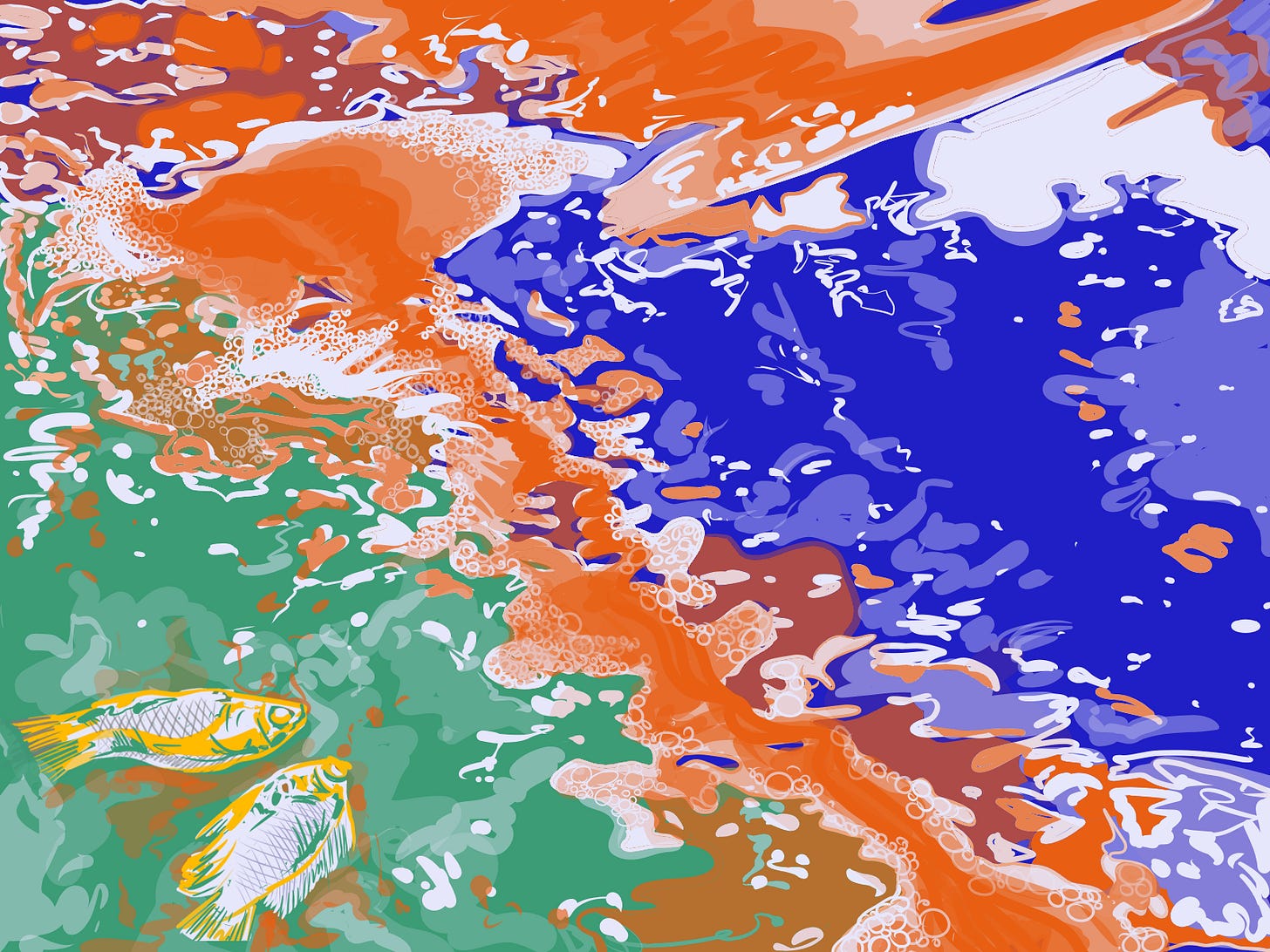Talking ecocide with Philippe Sands
Here's your Ours to Save newsletter for the week beginning 28th June.
🌏 Thanks for signing up to support small, purpose-driven media. Next Tuesday, expect stories on snow leopard conservation, aquaponics and Australian school strikes. 🌏
Criminalising ecocide: interview with Philippe Sands 👨⚖️
Ours to Save speaks to the barrister and author of East West Street about why ecocide should sit alongside war crimes and genocide as an international crime.
“There have been no new international crimes for 75 years. At the time [the Rome Statute was developed], in 1945, laws against genocide, crimes against humanity, crimes of aggression dealt with immediate needs. The environment was not part of the constellation of things people cared about at that time.
75 years on this planet later, and it's plain that something big is happening with the environment – something that is extremely concerning.”
The dark waters of the Dnieper River 🐟
A young resident of one of Ukraine’s most polluted cities documents the impact of flagrant river contamination.
The Dnieper River crosses over eight regions through Ukraine and feeds into the Black Sea. Used for transportation, fishing and leisure, it is a vital part of the country. However, it has another use – which has been kept under wraps. The Dnieper has become a waste dump for oligarchs.
Oligarchs control numerous factories in numerous cities, including mine, Zaporizhzhia. Yes, factories drive the economy and provide people with work to sustain their living. But right now, the price is citizens’ health and wellbeing.
Khadi weaving: an anti-colonial symbol turned eco solution ✊
Could this sustainable form of cotton production help spell the end of debt and depression for India’s farmers?
Every day, 28 people working in the farming sector die by suicide in India. Debt, droughts, and exploitation are among the key reasons, but the hard-line BJP government has done little to alleviate the situation. The problem is particularly pronounced in the Western Indian state of Maharashtra, where an estimated 95% of farmers struggle with debt.
A key factor propelling financial instability is the use of BT cotton – a genetically modified variety of cotton, which was first introduced in 2002. The seeds are sold at an exorbitant price of around 2,000 rupees (roughly equivalent to £20) a kilogram.
With Amazon destroying millions of items a year, what are we going to do about e-waste? 💻
We dissect the UK’s new proposals for tackling electronic waste – asking whether, with giants like Amazon to contend with, they will be enough.
An investigation by ITV News has revealed the online marketplace is destroying unsold or returned products like laptops, headphones and TVs at mass scale. At just one of its 24 UK fulfilment centres, Amazon is sending up to 200,000 items a week to landfill, according to an anonymous former employee.
Amazon’s conduct proves a disjunct between PR and progress in Big Tech. The corporation is not acting illegally, making it clear the UK needs tighter restrictions on electronic waste.
Over the past few months, Ours to Save has spoken to e-waste experts about how the UK’s new measures stack up.




